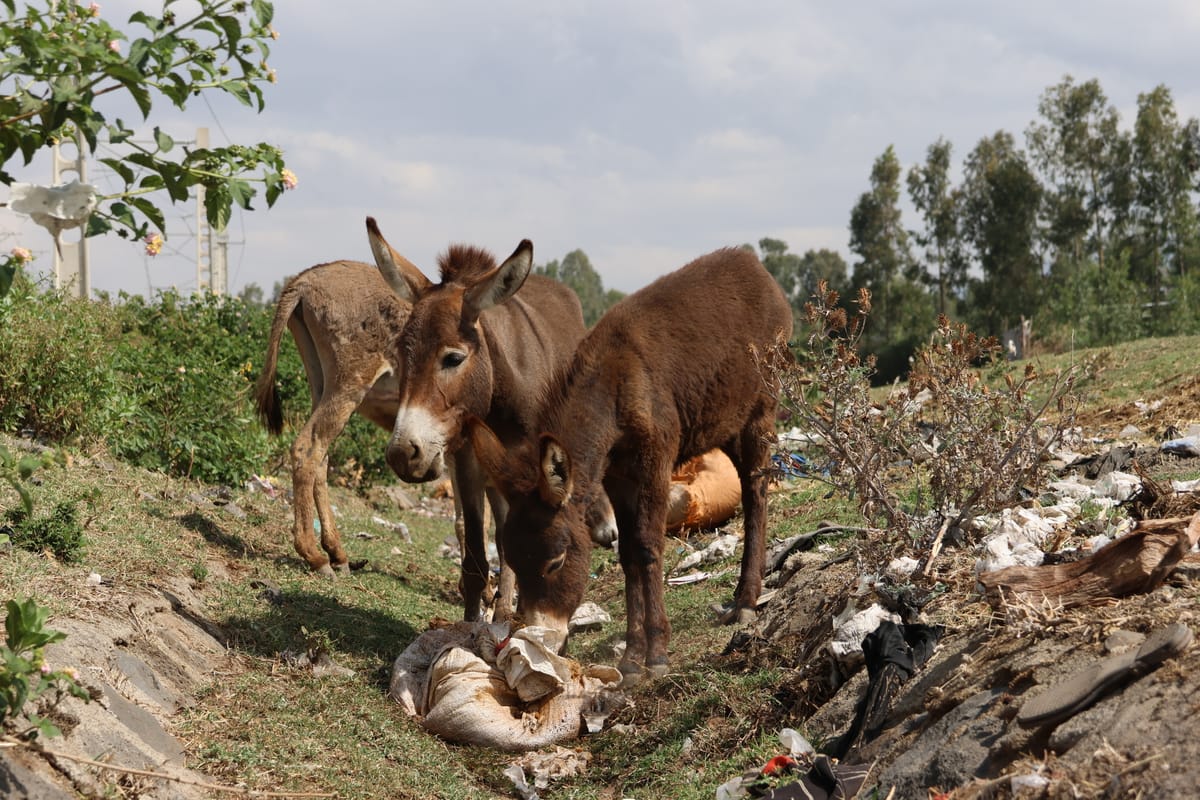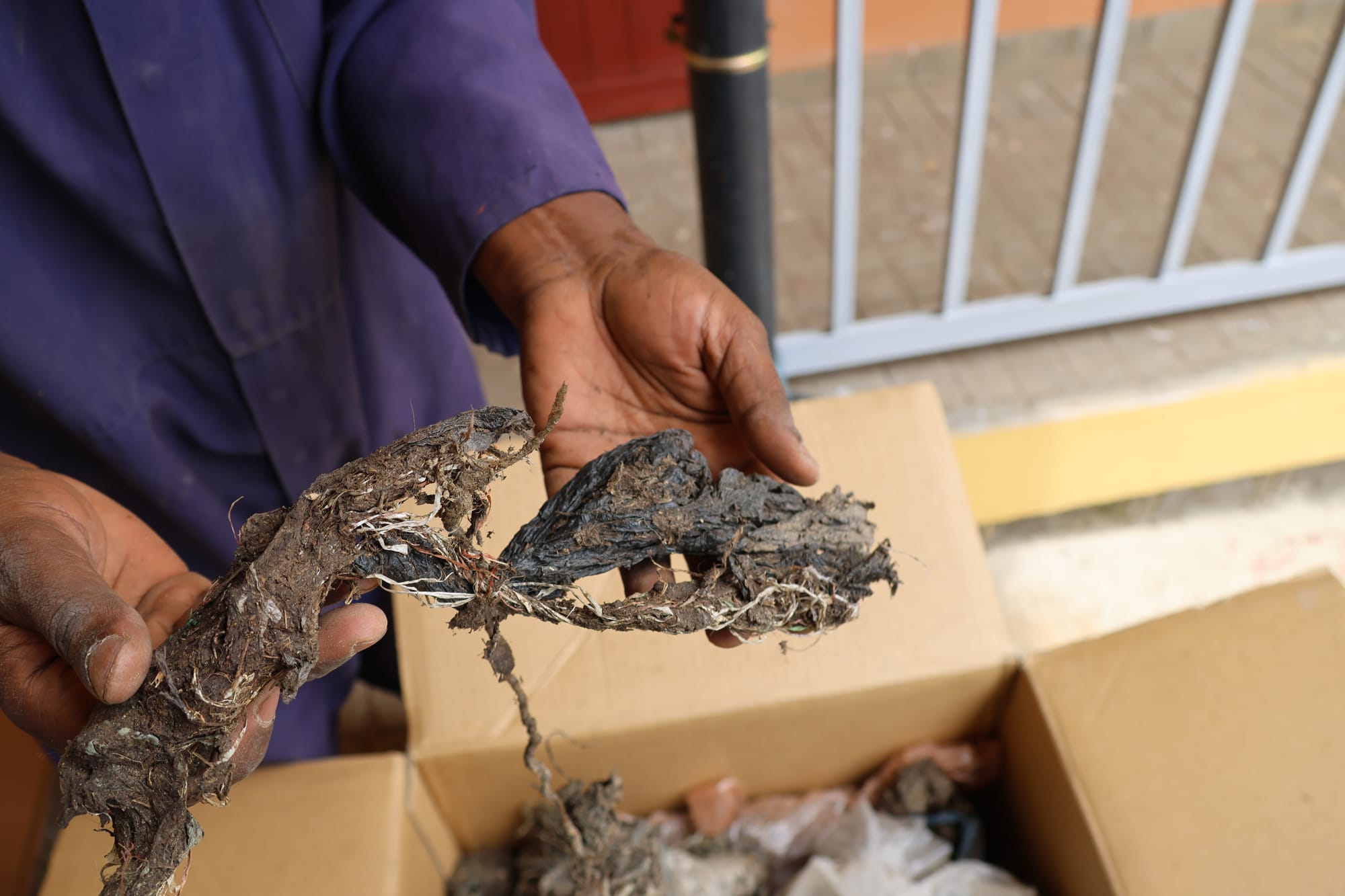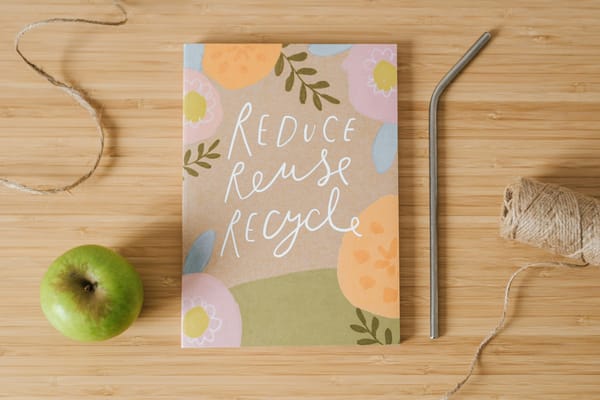Pioneering Study Aims to Protect Ethiopia’s Donkeys from Plastic Pollution

By Jill Dando News
The Donkey Sanctuary is shining a light on the plastics crisis facing Ethiopia’s working donkeys - an issue the international animal welfare charity hopes to address with the first study of its kind in its partnership with Addis Ababa university.
The harmful ingestion of plastics by marine wildlife has been widely researched and reported, however, much less is known about the impact of plastic pollution on terrestrial animals.
This research will therefore contribute to a vital and growing body of knowledge about what can be done to reduce the harm caused by plastics and alleviate the suffering of those most affected, including donkeys.
Ethiopia has the largest population of donkeys in the world, estimated at around 10.6 million.
Across the country, working donkeys play a vital role in sustaining livelihoods - carrying heavy loads and supporting women and children in their daily activities. However, many forage among dumped waste for food, meaning they often ingest plastic which can have fatal consequences.
The Donkey Sanctuary Ethiopia works in partnership with the university’s College of Veterinary Medicine and Agriculture (CVMA).
Through its two clinics in Merkato in the capital Addis Ababa, and in the town of Bishoftu, cases of colic linked to plastic consumption are among the most frequently encountered clinical presentations.

Ingested plastics, often resulting in intestinal impaction or obstruction, is a common and significant health problem in donkeys which can often be fatal.
The new study aims to gather detailed information to assess the scale of the issue, identify key risk factors that lead to plastic ingestion in donkeys, and propose evidence-based, sustainable solutions.
Clinical records show that colic linked to plastic pollution is more common in urban donkeys than in rural ones. This is largely due to limited grazing in urban areas, pushing animals to forage on roadsides, drainage canals, and rubbish dumps, where plastic waste is often found.
Clinic staff report that discarded plastic bags once used for food, vegetable scraps, or spices are especially appealing to donkeys, increasing the risk of ingestion. In some cases, the plastic passes through with veterinary help, but many animals continue to suffer and die. Those reaching clinics represent only a small portion of the affected population—many die in communities without access to veterinary care.
According to the Ethiopian Environmental Protection Authority (EPA), 79% of plastic waste is neither recycled nor incinerated, accumulating in dumps, landfills, roadsides, and waterways, posing serious risks to animals, humans, and the environment. While the issue isn’t unique to Ethiopia, plastic pollution is a growing global concern.
The Donkey Sanctuary and Addis Ababa University will begin their collaborative research early next year, using various scientific methods to assess the problem and inform policy.
Encouragingly, Ethiopia has recently passed a bill banning single-use plastic bags and adopted a national plastic waste strategy, which—if effectively enforced—could help reduce the health and welfare impacts of plastic on animals and the wider environment.
The Donkey Sanctuary Ethiopia and Addis Ababa University recently celebrated 30 years of collaboration and launched a five-year plan to continue improving donkey welfare across Ethiopia and beyond.





